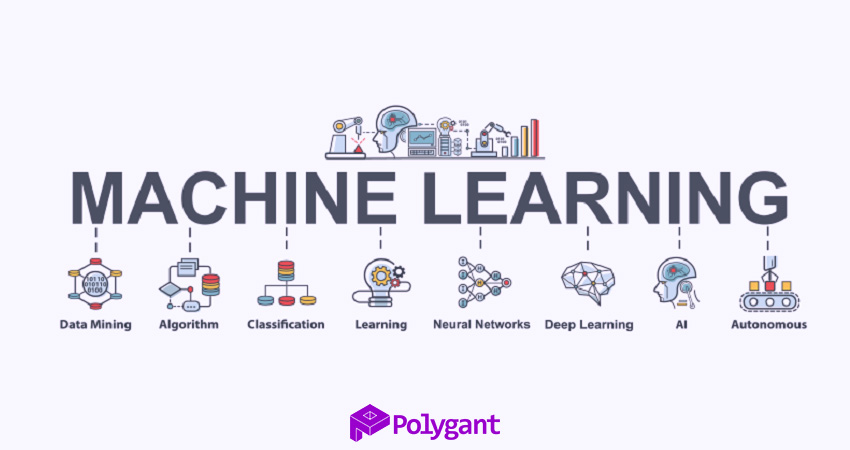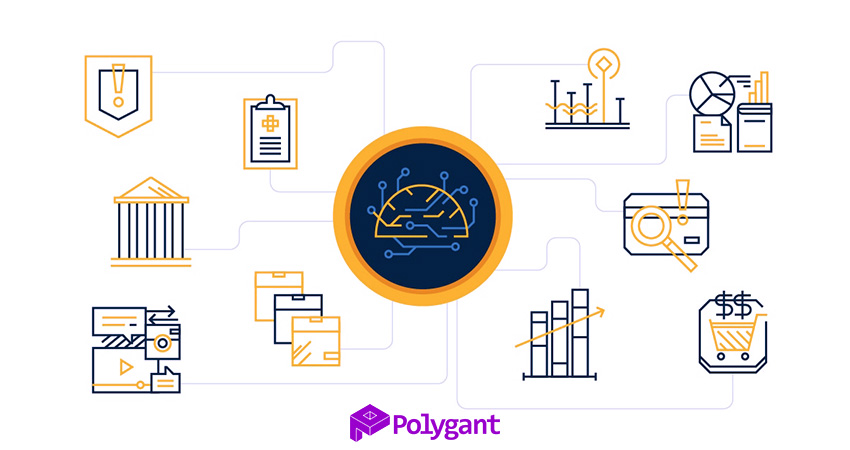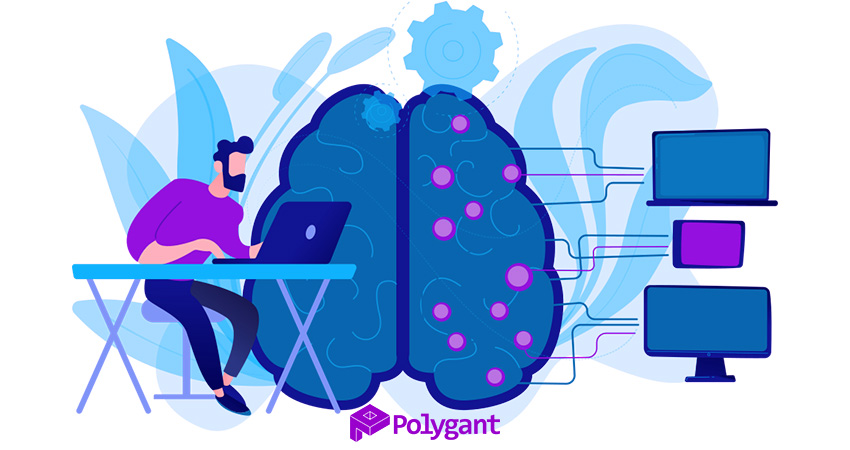Artificial intelligence has long been introduced as innovative technology at presentations and industry conferences. However, only one of its fields—machine learning—has worked in practice. Even though it is not widely spoken, it prompted the growth of artificial intelligence’s popularity. Let’s expand on what it is and how it can be used in business.
Table of Contents
What machine learning is
Machine learning is a discipline, not a technology, although at times it is called that. The discipline emerged in 1959 when the scientist Arthur Samuel coined the term. At that time it meant the ability of computers to learn without the traditional programming of new skills.
What does learning mean? It implies that engineers apply methods to computer models by which they process the provided data and learn from it. The 4 most commonly used machine learning methods are:
- Supervised.
- Unsupervised.
- Semi-supervised.
- Reinforcement learning.
Then the models independently apply the knowledge gained in practice, for example, when making decisions or predictions, and further improve themselves as they gain experience. The main goal is to allow computers to automatically learn without human intervention and to adjust actions in agreement with the required tasks and results.
Why machine learning is good for businesses
The use of machine learning allows companies to easily adapt to the changing market conditions, perfect business operations, and better understand consumer needs. As developers of fintech solutions, we have experience in ML algorithms that are then applied in financial analytics. Our applications have been used for both simple tasks (cost analysis and expense predictions) and complex ones (money laundering detection and algorithmic trading).
These scenarios often rely on historical data analysis to more accurately predict future results. The accuracy of these predictions depends on the input data and created algorithm. For example, to predict the expenses of a company, a simple algorithm with a small data set is enough. However, for something more complicated, for example, for algorithmic trading, the model would have to be trained on decades of data, with many modifications and revisions.
Precise predictions help companies manage total expenses, increase the rate of return and enter the market on time. While analytics with automation lead to cost savings.
When to implement machine learning
Small companies process a big load of work with limited resources, which makes IT decisions valuable to them. However, the majority of businessmen consider the technology unaffordable and therefore disregard it. They are wrong in many cases, including the fields of artificial intelligence. 20 years ago the services of machine learning were considered technically complex and expensive, while today they are available to any company. Tech giants and cloud providers have even launched ML platforms that allow businesses of all sizes to create their data-driven applications.
Your company may require machine learning, not at a particular time such as when the business grows to a certain level, but to perform regular tasks today. Consider whether it is worth automating tasks like these with machines:
- Monitor the financial state of the company
- Accelerate the time to market and return on investment
- Perfect work processes
- Increase flexibility and productivity
- Assess the risks of labour costs
- Delegate administrative tasks to a voice assistant
- Process documents with the help of AI
- Receive marketing insights in real time
- Deal with ad fraud
- Detect security breaches and theft
- Protect from phishing attacks.
If any of these are relevant to your business and you have sufficient amounts of data, then implementing machine learning will be beneficial. It is then only necessary to adapt the algorithms to your processes, which we will help with when you contact us.



